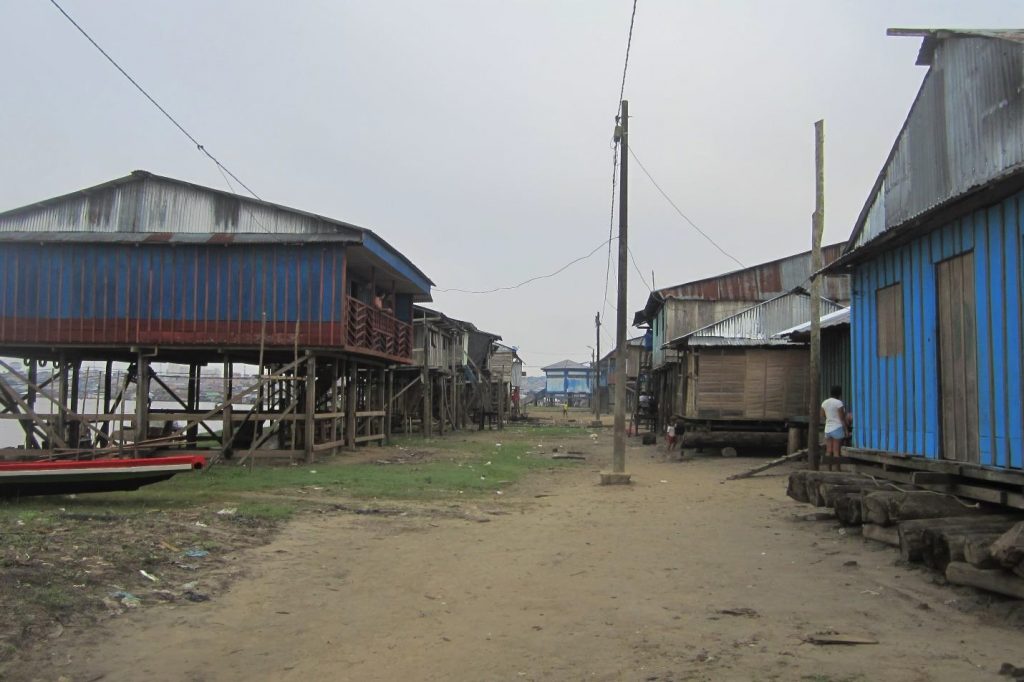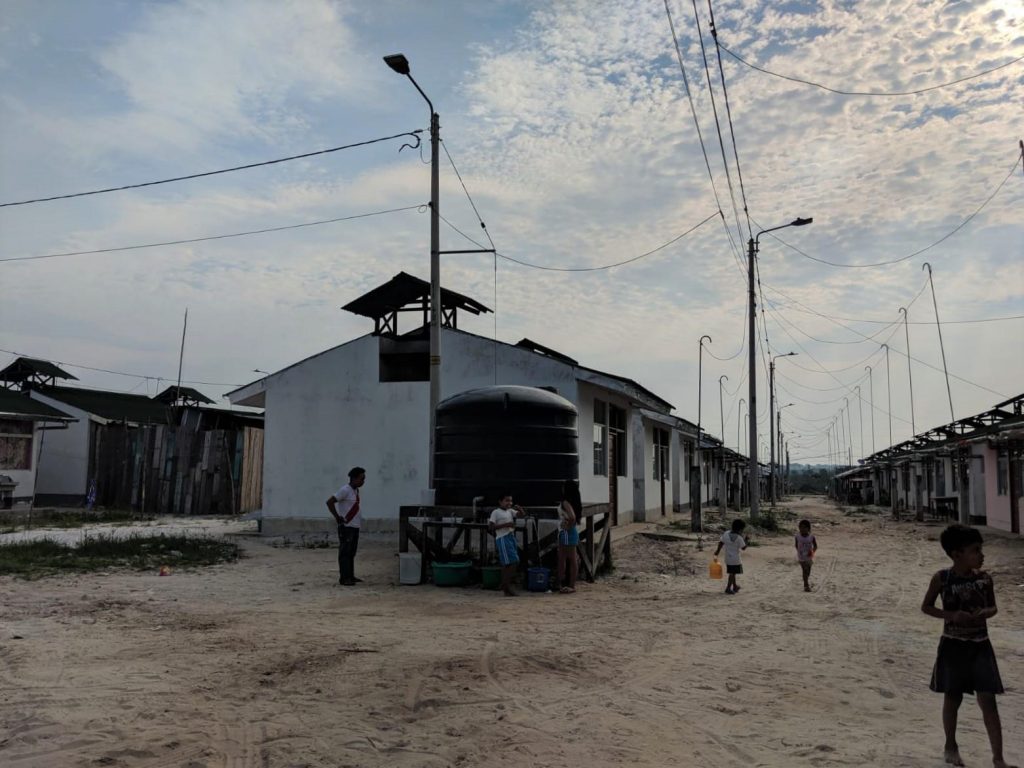Dena Coffman 2019 Field Report
2018 CLAG Field Study Award Report:
Dena Coffman, Masters Student, Department of Geography & Planning, University of Toronto
Project: Urban Livelihoods, Flood Vulnerability and Resettlement in Iquitos, Peru
My fieldwork was conducted in Belen, a low-income, informal neighborhood in the city of Iquitos Perú, situated on the Amazon floodplain. During the flood season, roughly February to May, most of Belen is underwater. Residents use traditional flood adaptations such as building their houses on stilts or rafts and using canoes to move around when the water is high. Belen is considered one of the poorest areas of the country, and many residents lack essential services such as running water and sewage in their homes. Despite this, Belen has strong, cohesive community groups: residents regularly participate in neighborhood celebrations, meetings and mingas, or cleanups. Belen is also home to a vibrant market, where many residents make their living as vendors.

In December 2014, the Peruvian federal government declared a public emergency in order to relocate residents of Belen, citing environmental and sanitation risks from repeated flooding. Residents will be relocated to a site located about 14 km outside of Iquitos, dubbed “Nuevo Belen.” Since 2015, 400 households have relocated; further construction is anticipated in the coming year. Relocated families are offered a small house to be equipped with running water, electricity and sewage; public amenities in Nuevo Belen will include a school, a health center, and a market. Despite these incentives, the project is highly contested. Relocation is voluntary, but many residents feel that they are being pushed out. Furthermore, many of the promised amenities in Nuevo Belen have not materialized.
Nuevo Belen is one of a growing number of proactive resettlement projects around the world. Proactive resettlement is seen as a pragmatic way to prevent disaster and reduce vulnerability by moving people out of risky areas before disaster strikes. In some areas, resettlement may be the only feasible option to cope with the effects of climate change. However, poorly planned resettlement projects can leave vulnerable populations isolated and impoverished. Further discussion is needed to guide future projects, grounded in the experiences of people who are directly affected. In this context, my research seeks to understand the impacts of the Nuevo Belen relocation onresidents’ day-to-day lives. How has the relocation affected residents’ livelihood strategies, economic activities and income; and has it changed their vulnerability to floods?

To answer these questions, I conducted 60 household surveys: 30 in Bajo Belen and 30 in Nuevo Belen. These surveys included questions about residents’ livelihoods, community organizations, floods and other environmental problems, and opinions on the Nuevo Belen relocation. I also conducted 8 open-ended interviews with key informants, such as elected community leaders and public health officials.
My findings indicate that relocation has reduced residents’ exposure to floods; Nuevo Belen is inland, where flooding is rare. Interestingly, however, not everyone in Belen felt that flooding was a significant problem. In fact, the flood season is a boon to some people, such as fishers and boat-taxi drivers, who structure their livelihoods around the flood. My results also suggest that relocation has left many households economically isolated. More than half the households surveyed reported that their income decreased after relocating. I hope that my research emphasizes the importance that livelihood security and access to economic opportunity must play in the planning of such projects.
The fieldwork travel grant from CLAG was vital in allowing me to complete my research. There has been little scholarly research on the Nuevo Belen project, so traveling to Peru allowed me to produce new data on the subject. The CLAG award helped to offset my many expenses such as flights, housing in Iquitos, and hiring a local research assistant. In addition, having the support of the CLAG grant also made me feel more confident in the importance of my research – and for that I am especially grateful.
Please see the full report for more details.


















